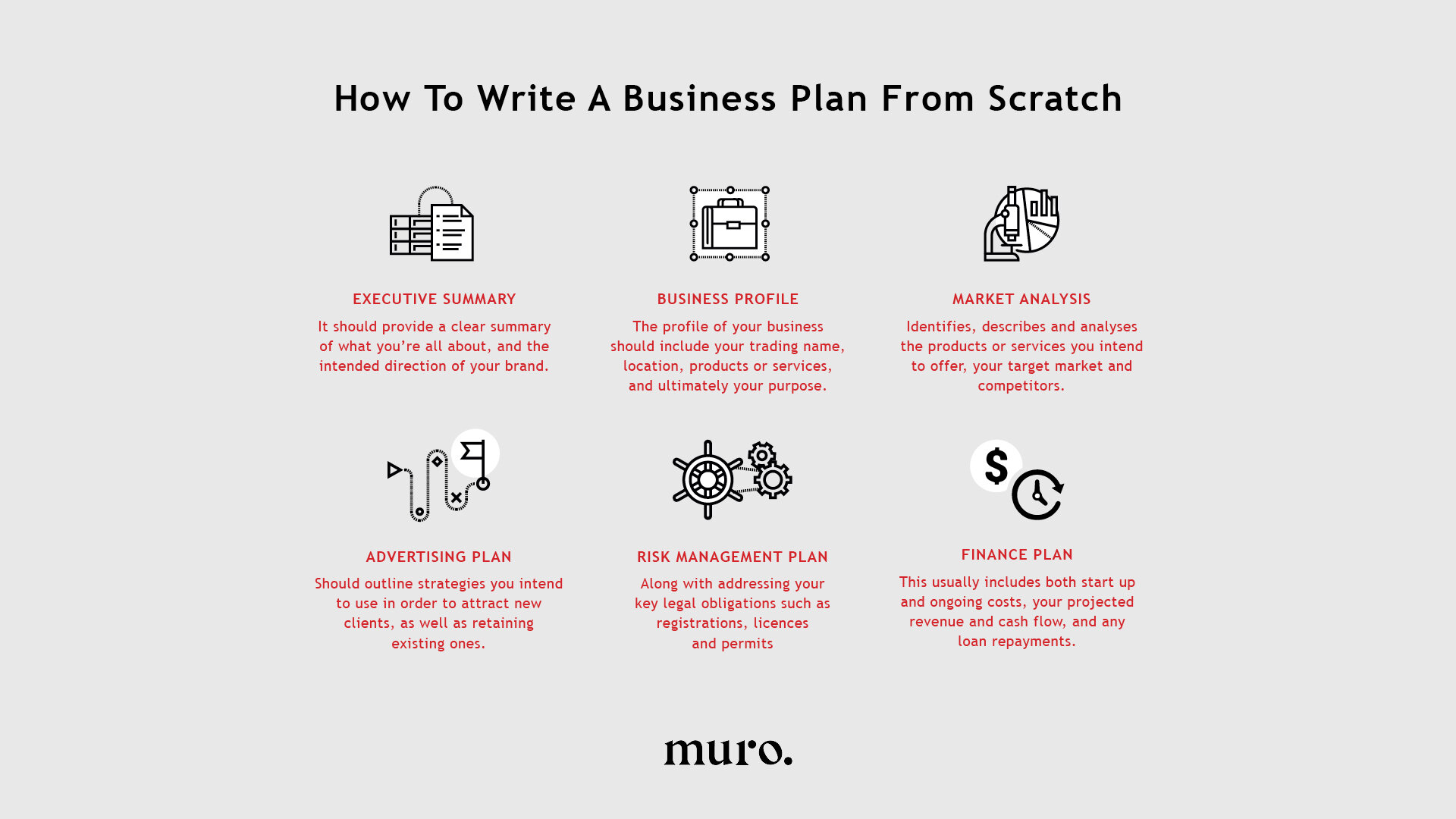Thinking of launching a brand new hustle? If you want the best shot at success, then that includes getting organised and knowing how to write a business plan.
The sad reality of trading in Australia is that it truly is a jungle out there. According to the Australia Bureau of Statistics, more than 60% of small businesses cease operations entirely within their first three years of trading. While there are a medley of reasons why businesses crash and burn - particularly within the first six to twelve months - what can you do to avoid becoming another statistic? The good news is that it’s more often than not simply a matter of planning ahead.
What Is A Business Plan And Why You Need One
All budding entrepreneurs should think of a business plan as a road map to their goals. On paper, a good business plan identifies where you currently are, where you want to be, and your plan as to how to get there. It is a “living document” that will ideally grow, change and develop right alongside your business.
Depending on how far down the rabbit hole you wish to go, a business plan will also serve as a key document to present to investors, banks and venture capitalists. Further down the track, if you decide to sell your business, the document will also prove useful in attracting potential buyers. When figuring out how to write a business plan from scratch, there are a few key inclusions that shouldn’t be ignored.
How To Write A Business Plan And What To Include
Unfortunately, many new operators avoid writing a business plan entirely as they simply don’t know where to start. The good news is that the process is actually quite straightforward, and relatively easy to structure.
Executive Summary - The executive summary is often the first thing that third parties read regarding your business plan, so sometimes it’s best left until last. It should provide a clear summary of what you’re all about, and the intended direction of your brand.
Business Profile - An extension of the executive summary, the profile of your business should include your trading name, location, products or services, and ultimately your purpose. It also usually includes information about you as the owner, such as your experience or education.
Market Analysis - This section of your business plan identifies, describes and analyses the products or services you intend to offer. It should also include your target market, your competitors, and how you plan to cement your position in your chosen area of trading.
Advertising Plan - Your plan of attack regarding advertising should outline strategies you intend to use in order to attract new clients, as well as retaining existing ones. Consider key differences that set you apart from your competitors and what’s already available on the market.
Risk Management Plan - Along with addressing your key legal obligations such as registrations, licences and permits, it also identifies events or potential issues that may negatively impact your business, and how you intend on dealing with them.
Operating Plan - This outlines the technical stuff, and the fundamentals as to how your business works such as distribution and how your products or services come to fruition - think lease terms, equipment, labour, materials, and what’s needed for the day to day operations.
Personnel Plan - Are you going to stay a lone ranger forever, or will you eventually need a team? The management and personnel plan should cover staff functions, job descriptions, human resource policies, workforce planning, training and credentials.
Finance Plan - A key feature of any business plan is outlining your finances. This usually includes both start up and ongoing costs, your projected revenue and cash flow, and any loan repayments. This is crucial if you hope to secure funding or attract investors.
Action Plan - The action plan will identify the tasks you need to complete to achieve your goals, including the resources you need. Think of it as a summary that acts as a road map in getting to where you want to be as a business owner.
A Professional Insight On How To Write A Business Plan
If understanding your finances or the in’s and outs of doing business isn’t your strong point, then it may be reassuring to know that you’re not alone. In fact, many businesses (big and small) enlist the services of an accountant in order to free up their time while knowing that their financial obligations are already taken care of by the professionals.
What you choose to invest in or shy away from as a business owner can have a domino effect that ripples through your entire team - so are you confident in your financial choices? In order to give yourself the best possible shot at success, why not download our free “Business Plan Template” for both new and established business owners to see if you’re on the right track or not.
Ultimately, the team at Muro Accounting believe that every business owner is an entrepreneur. However, accounting does not discriminate - finances break down barriers and are not territorial. If you would like to take a deeper look into your finances, please get in touch with us at Muro today to ensure that you’re on the right path for success.

